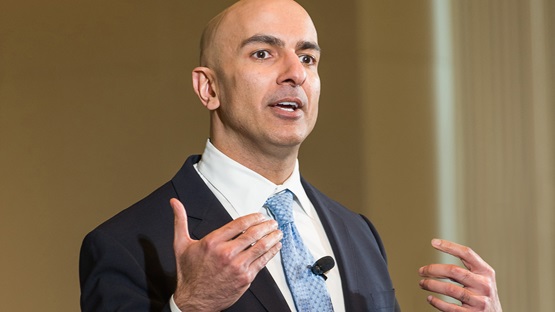
When the eurozone was created 20 years ago, its member nations bargained that the benefits—a stable currency, lower transaction costs, and reduced investment uncertainty, among other advantages—would more than compensate for their sacrifice of independent monetary authority.
That faith was sorely tested during and after the 2007-09 financial crisis. Greece, Spain, and Italy faced severe sovereign debt crises; stronger economies like Germany and France were reluctant to bail them out. The union came perilously close to collapse, rescued in large part by Mario Draghi’s famous 2012 reassurance that the European Central Bank would “do whatever it takes to preserve the euro.”
Economists have devoted substantial effort to understanding the dynamics behind such crises, and “rollover risk” is the focus of much of this research. It’s the risk that when a nation needs to refinance its debt, lenders will require higher interest rates or will simply refuse to lend again. The prospect leads nations to consider outright debt default, even though that means borrowing in the future will be difficult and expensive.
In recent research, Minneapolis Fed Senior Research Economist Javier Bianchi and Jorge Mondragon of the University of Minnesota look at “Monetary Independence and Rollover Crises” (WP755) to understand how lack of monetary autonomy affects a nation’s vulnerability to rollover risk.
Their conclusion? Relinquishing the ability to set national monetary policy, whether by joining a monetary union or fixing exchange rates, significantly raises the likelihood of a rollover crisis because lenders accurately anticipate that, in crisis situations, nations without access to macroeconomic stabilization powers will consider debt default more attractive than nations with such access.
“Our quantitative findings suggest that a significant cost from joining a monetary union is a higher exposure to a rollover crisis,” they conclude. Without access to the tools of monetary policy, nations in crisis find it harder to stabilize their economies. Repaying debt becomes more onerous because the necessary tax increases and expenditure cuts will generate unemployment, making default a more viable option. Lenders realize this and are less likely to lend. The crisis is self-fulfilling.
The “printing press” argument?
Economists have often suggested that belonging to a monetary union makes nations vulnerable to such problems, but the conventional argument is that a nation with full authority over its own monetary policy has an ability to inflate away debt burdens by issuing more domestic currency, if necessary, and that eurozone countries became more vulnerable because they could no longer resort to the “printing press” to reduce their debts.
Bianchi and Mondragon’s argument is different. The major sacrifice that nations make when joining a union, they contend, is giving up the ability to use monetary policy to stabilize the economy in the event of financial distress and unemployment. “Our analysis provides a new perspective,” they write.
Analysis of failure
To understand the mechanism at play, the economists build a model economy whose key features—along with the standard elements of households, firms, and government—are international lenders and downward wage rigidity.
Households provide labor to firms, firms pay workers from those households and produce goods that they consume, and the government pays for public goods such as education and national defense using taxes and borrows from international lenders.
When all is well, the economy churns along, lenders provide needed funds, and governments repay them on agreed terms. The economists dub this the “safe zone,” where governments will repay debts even if lenders are unwilling to lend in the future.
But when a crisis hits, as in 2008, equilibrium is lost and, as governments weigh the value of repayment against the value of default, loan repayment is more tenuous. If governments have access to monetary policy, they can stabilize their economies by lowering interest rates (much as the Fed did) and depreciating the exchange rate. But if they’ve relinquished that power by joining a monetary union, the costs of a crisis rise substantially because governments must rely on fiscal policy, which, by definition, is limited during a debt crisis. “As the government engages in large cuts in expenditures or increases in tax revenues,” they explain, “the economy will experience a contraction in aggregate demand, which will generate involuntary unemployment.”
Nominal wage rigidity
Wage rigidity is a crucial feature here. If wages adjusted downward during the crisis, unemployment would not be an issue—firms would still hire workers, at lower wages. But in the model, as in reality, wages tend to be somewhat inflexible—set by union contracts, perhaps, or government regulation—and unemployment is the result. “This increase in unemployment,” write the economists, “is at the heart of the mechanism to generate a larger exposure to a rollover crisis.”
For governments facing higher unemployment, the value of repaying loans decreases. Their first responses to financial crisis will be painful enough: Cutting social expenditures and/or raising taxes are socially distressing and politically unpopular. Demand for goods and services will shrink, generating unemployment—even more painful. “And if the increase in unemployment is large enough,” Bianchi and Mondragon observe, “the government defaults.” Realizing that this outcome is likely, lenders will be unwilling to lend: A rollover crisis ensues.
Thus, the combination of rigid wages and lack of monetary independence leads to a rollover crisis because such governments are unable to stabilize their economies, and investors know it.
The economists test their theory using data from Spain from 1996 to 2015. The simulation shows that sacrificing control over money supply—by fixing an exchange rate or joining a monetary union—results in a sixfold increase in the likelihood of rollover default.
“This highlights a substantial cost when entering a monetary union or pegging a currency,” they conclude. “In the presence of nominal rigidities, sacrificing monetary autonomy makes an economy more vulnerable to rollover crises.”



